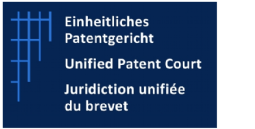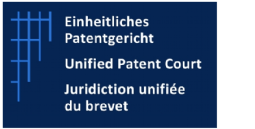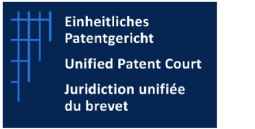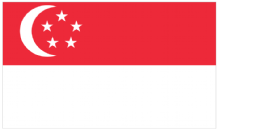This edition features updates from: the Unified Patent Court (UPC), India and Singapore.
The Irides Weekly Update is our round-up of patent litigation news highlights from around the world. Taking its name from the plural of “iris” - a nod to the ability of Irides to see what’s happening around the world.

UPC
Court of Appeal allows Boehringer Ingelheim’s appeal granting a preliminary injunction against Zentiva Portugal.
[UPC_CoA_446/2025]
On 13 August 2025, the Court of Appeal (CoA) granted Boehringer Ingelheim International GmBH (BI) a preliminary injunction (PI) against Zentiva Portugal, LDA. (Zentiva PT) in all contracting member states for which the patent in issue (EP 1 830 843) had effect, overturning the Lisbon Local Division's decision to refuse the PI based on this second medical use patent. Unlike the Lisbon Local Division, the CoA found that there was an imminent risk of infringement due to Zentiva PT's actions in Portugal.
The Portuguese regulatory authority, INFARMED, granted Zentiva PT two marketing authorisations on 30 August 2024 for Zentiva PT’s generic product referencing Ofev®, comprising the active ingredient nintedanib, for the treatment of idiopathic pulmonary fibrosis. Zentiva PT also applied to INFARMED for an agreed price, an agreed reimbursement rate and a Prior Evaluation Procedure (PEP) the purpose of which is the establishment of conditions for purchase of the product by public hospitals (this is a hospital use only medicine). This application was granted and on 12 December 2024, INFARMED issued a notice stating that the Zentiva PT’s product was available to purchase.
BI applied for an order for provisional measures on 23 January 2025, following the withdrawal of its opt out for its second medical use patent EP 1 830 843, which expires on 21 December 2025. It was undisputed that the generic product fell within the scope of the patent.
As a preliminary argument, Zentiva PT argued that the provisional measures were not needed because, on 25 March 2025, the Portuguese Intellectual Property Court had granted a PI to BI’s Portuguese entity for the same product, albeit on the basis of a different intellectual property right (an SPC based on a different patent). Both the Lisbon Local Division and the CoA rejected this argument - the national injunction was on the basis of the SPC and unlike the UPC application was territorially limited to Portugal.
Regarding the preliminary injunction:
Imminent infringement
PIs can be granted to prevent imminent infringement (Art. 62(1) and (4) UPCA). It is necessary to show that it is more likely than not that infringement is imminent.
At first instance, the Lisbon Local Division held that there was no imminent infringement because requesting a marketing authorisation or PEP does not establish a risk of imminent infringement and Zentiva PT had not engaged in any conduct indicating it will likely place the product on the market.
The Court of Appeal stated that there will be imminent infringement where the potential infringer has "set the stage for it to occur". The preparations for the infringing act have been fully completed. For generics, the mere application or grant of a marketing authorisation is not enough. However, the completion of national procedures for health technology assessment, pricing and reimbursement can amount to an imminent infringement. This assessment must be made with due regard to the national regulatory and legislative context.
In this case, Zentiva PT obtained its PEP more than a year before the expiry of the patent. The CoA considered this to be premature and to constitute an imminent threat of infringement. In coming to this conclusion it considered a number of factors which related to the question of whether any further administrative steps or procedures were required before Zentiva PT could offer (and sell) its generic products to public hospitals. The CoA concluded that no such further steps or procedures were required – it was more likely than not that the approved PEP would enable Zentiva PT to offer its products to Portuguese public entities. The only thing preventing acts of infringement was effectively self-restraint. Further, Zentiva PT was unable to explain why it would be useful to obtain a PEP more than one year before patent expiry.
Necessity
The CoA also held that the necessity requirement was met (r. 6.2(c) RoP). Boehringer Ingelheim argued that the prices of Zentiva PT's product would be 30% lower than Ofev®. The CoA accepted that having two competing products on the market can not only lead to price pressure, but a permanent price erosion, which is an important factor when considering whether provisional measures are necessary.
Urgency
There was no unreasonable delay in seeking provisional measures per r. 211.4 RoP.
The preliminary injunction was therefore granted, covering each of the territories in which the patent had effect. The CoA held that there were no circumstances that would require a restriction in the territorial scope (Art. 76(1) UPCA). The fact that Zentiva PT did not hold any marketing authorisations outside Portugal did not matter.

UPC
Mannheim Local Division rejects request to review a previous order denying application to amend.
[UPC_CFI_745/2024]
On the 8 August 2025, the Mannheim Local Division rejected CeraCon GmbH's (CeraCon) request to review an order rejecting its application under r. 263 RoP for leave to amend its counterclaim for revocation by introducing a new prior art document.
Sunstar Engineering Inc issued infringement proceedings against CeraCon, claiming it infringed EP 4 108 413 and on 6 March 2025, CeraCon counterclaimed for revocation. On 8 May 2025, CeraCon then filed an application pursuant to r. 263 RoP to amend its counterclaim, alleging lack of novelty over a new prior art document. The Judge-Rapporteur dismissed the application on the basis that this application did not satisfy the requirements of r. 263 RoP. In response, CeraCon filed a request for review (r. 333 RoP), arguing that the judge-rapporteur had misapplied r. 263 RoP and that not allowing new prior art documents into a case where it is clear that the patent is invalid over such new prior art documents would create a materially unlawful situation that would not be in the interests of the UPC or the public.
The panel found that the request for review was unfounded. R. 263 RoP is a discretionary power, and the interests of the parties and the public should be balanced. With that in mind, the Judge-Rapporteur rightly weighed up the interests involved, including the fact that introducing the new prior art document into the case would unreasonably hinder the patentee which would need time to respond to the new citation. In addition, in this case, the new prior art document was a patent application that would have easily been discoverable using a standard prior art search. CeraCon had therefore not acted with reasonable diligence in conducting its prior art search when first preparing its counterclaim for revocation, contrary to the requirements of r. 263.2(a) RoP.
The panel further noted that any hardship to CeraCon could be remedied by suspending the infringement proceedings pending a separate revocation action (r. 118.2(b) ROP) or rendering a conditional decision on the merits of the infringement action (r. 118.2(a) RoP)) pending the outcome of a separate revocation action.

UPC
Milan Central Division considers appeal after EPO rejects request for unitary effect.
[UPC_CFI-628/2025]
On 6 August 2025, the Milan Central Division dismissed an appeal brought by (1) Bodycap, (2) the National Centre for Scientific Research and (3) the University of Rennes against the EPO, in which they appealed against the EPO’s rejection of their request for unitary effect concerning patent EP 3 691 518.
The UPC has exclusive jurisdiction over actions brought against decisions of the EPO relating to unitary protection within the meaning of Art. 9 of Reg. No 1257/2012 and Art. 32(1)(i) UPCA.
The appellants’ initial request for unitary effect, filed on 17 January 2025, contained inaccuracies in the address of the third patent proprietor. The EPO consequently issued a notification under r. 7.3 RoP granting a non-extendable deadline of one month (until 27 February 2025) to correct the irregularities. The appellants responded on 3 March 2025, four days after the deadline.
The EPO rejected the request, observing that the full address was required for reasons of legal certainty as to the identity of the European patent proprietor, and the time limit for remedying any irregularities had been missed (and was not extendible).
The appellants based their appeal of the EPO’s rejection on two main arguments:
- The information relating to the address of the third patent proprietor was sufficient to identify it, taking into account also the correct indication of the other two proprietors, and it was merely a minor error; and
- The time limit for remedying the irregularities was exceeded by a negligible amount.
The court found that the appellants’ arguments did not justify overturning the EPO’s decision, noting:
- R. 41 of the EPC Implementing Regulations (which governs requests for grant) requires that the information contained within the request is precise, i.e. a complete identification of the patent proprietors, including accurate addresses, is required. This approach is adopted with a view to safeguarding the rights of third parties and achieving legal certainty. In this instance, there were significant discrepancies in the address that had been provided by the appellants; and
- The time limit under r. 7.3 RoP is mandatory and a failure to comply with it automatically results in the rejection of the application. If the EPO were to accept documents received after the time limit, this would call into question the legal certainty of the system, as other users would seek to benefit from it, on the basis of the principle of equality, and it would be impossible to establish a time limit for the period.
This decision emphasises the importance of legal certainty and strict adherence to procedural rules, and confirms the limited scope for flexibility in correcting formal errors.

INDIA
Delhi High Court orders Korean-entity ACE Technologies to deposit $35 million security.
In proceedings before the Delhi High Court, Communication Components Antenna Inc. (CCA), a Canadian company, alleged that Ace Technologies Corp. (Ace) (a Korean manufacturer) and related Hong Kong and Indian entities had infringed its Indian Patent No. 240893 covering base station antenna technology. In earlier preliminary injunction proceedings, the Court had found prima facie infringement, and ordered Ace to deposit 10% of sale proceeds as security (amounting cumulatively to about $8 million).
On 1 July 2025, the Delhi High Court granted a further application by CCA seeking security from. CCA argued that if they waited for a final decree, Ace may not by that point be able to satisfy the Order. Ace was ordered to deposit ₹290 Crore (c. $35 million), in addition to the sums already deposited, within four weeks, either via a bank guarantee or fixed deposit with the Registrar General of the Court. ₹290 Crore represented 25% of the estimated damages at that point.
In granting this Order, the Court accepted CCA’s arguments, based on s. 151 Code of Civil Procedure, which provides the Court with inherent powers to pass such order as necessary to ensure justice is met and to prevent any abuse of process. The Court noted that Ace lacked assets in India and had suffered a substantial decline in its share value of approximately 65% since the earlier Order had been made. It considered that CCA had made out a prima facie case, with the balance of convenience being in CCA’s favour.

SINGAPORE
Increase to patent fees from 1 September 2025.
From 1 September 2025, the Intellectual Property Office of Singapore will be increasing patent fees for patent renewals, patent excess claims, amendments and extensions of time. There will be a decrease in application fees for the grant of plant varieties, and some further fee updates to take effect on 1 April 2026. More information can be found here.

/Passle/5f3d6e345354880e28b1fb63/MediaLibrary/Images/2025-09-29-13-48-10-128-68da8e1af6347a2c4b96de4e.png)
/Passle/5f3d6e345354880e28b1fb63/MediaLibrary/Images/2025-07-10-13-52-35-189-686fc5a39f23a993118ba1a0.png)
/Passle/5f3d6e345354880e28b1fb63/SearchServiceImages/2026-02-20-09-54-03-745-69982f3bff07facd13d88f69.jpg)
/Passle/5f3d6e345354880e28b1fb63/SearchServiceImages/2026-02-18-09-25-14-317-6995857a406a38553e720e5d.jpg)